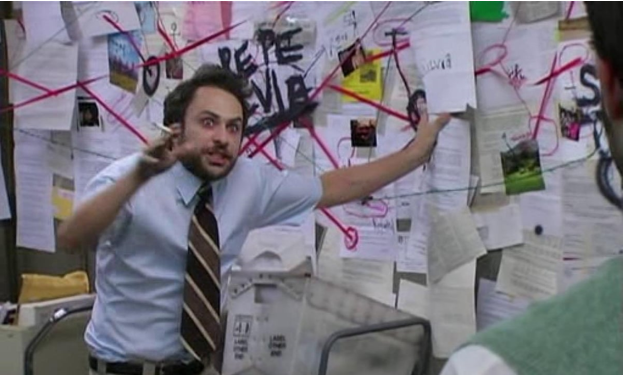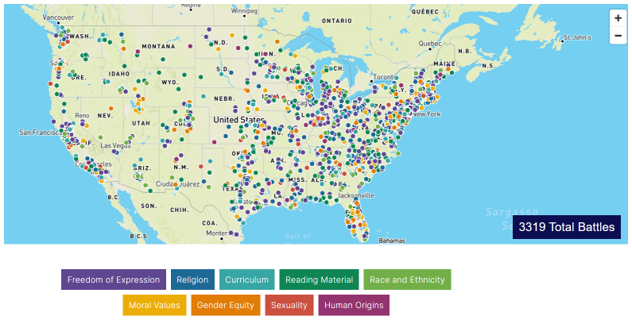 Texas Monthly features a sprawling tale of the Dripping Springs Independent School District and how it plays into a vast right-wing conspiracy to destroy public education. If you have a pot of coffee to keep you awake and a couple of hours on your hands, you can read about it here.
Texas Monthly features a sprawling tale of the Dripping Springs Independent School District and how it plays into a vast right-wing conspiracy to destroy public education. If you have a pot of coffee to keep you awake and a couple of hours on your hands, you can read about it here.
Be forewarned, however, that this article contains “wet roads cause rain” thinking and bedrock assumptions that a mildly skeptical middle schooler could think through.
The article simultaneously frets about Dripping Springs ISD becoming overcrowded due to the failure of a bond election and the possible loss of students from school choice measures the Texas Legislature might pass in 2023. A more intellectually coherent read of this situation would be that Dripping Springs ISD faces a possible overcrowding problem and a private choice program could possibly alleviate it.
Alternatively, the community could change its mind about bonds in a future election.
Texas has 1,026 school districts, and the author of this piece asks you to believe that various school policy and tax controversies in one of them – Dripping Springs – is part of a vast conspiracy to destabilize Texas public education.
Why? As a lead-up to a legislative push for school choice. “Today Dripping Springs, tomorrow TEXAS!” is a background assumption.
To put things mildly, this is deeply implausible.
As it happens, Dripping Springs is represented in the Legislature either by people who have voted for school choice in the past and/or who are likely to do so in the future. Whether they wind up in the majority on any future vote remains to be seen. But the local concerns of Dripping Springs ISD are just that: the local concerns of Dripping Springs ISD.
The conspiracy saga would have you believe that the controversies in Dripping Springs are the result of right-wing malefactors. ALEC! Koch Brothers! TPPF!
But public-school controversies have been around since the advent of public schools themselves. Does the Scopes Monkey Trial ring any bells?
These controversies continue, an there is not much chance they will stop in a system of schooling where everyone pays for a one-size fits all system of schools. The Cato Institute keeps track of these controversies in a “Public School Battle Map.” It’s safe to assume that this is a mere fraction of the public-school battles:
 Public school controversies are not the product of conspiracy, but rather a reflection of a pluralistic society and a struggle for power over who gets to control the one-size fits all system. When I eyeball the map, it looks a lot like a population density map. In other words, public school controversies tend to break out everywhere that people live.
Public school controversies are not the product of conspiracy, but rather a reflection of a pluralistic society and a struggle for power over who gets to control the one-size fits all system. When I eyeball the map, it looks a lot like a population density map. In other words, public school controversies tend to break out everywhere that people live.
John Stuart Mill warned us about the Battle Map back in 1859, pointing out for his readers that diversity in education was of “unspeakable importance.” Mill predicted the controversies in Dripping Springs (and everywhere else):
All that has been said of the importance of individuality of character, and diversity in opinions and modes of conduct, involves, as of the same unspeakable importance, diversity of education. A general State education is a mere contrivance for moulding people to be exactly like one another: and as the mould in which it casts them is that which pleases the predominant power in the government, whether this be a monarch, a priesthood, an aristocracy, or the majority of the existing generation, in proportion as it is efficient and successful, it establishes a despotism over the mind, leading by natural tendency to one over the body.
An education established and controlled by the State should only exist, if it exist at all, as one among many competing experiments, carried on for the purpose of example and stimulus, to keep the others up to a certain standard of excellence.
Much of what is described in the article is a sadly typical battle over “the mould” in Dripping Springs. The author’s bleak conclusion poses questions like: Where are we going to find school board members and teachers, given the level of acrimony surrounding public schools?
Where indeed, unless we find a way to reduce the acrimony. The author thus sticks the landing, but for the opposite case attempted.
As John Stuart Mill laid out the argument long ago, you can either have diversity and choice in schooling, or a cultural forever-war over public schools.


